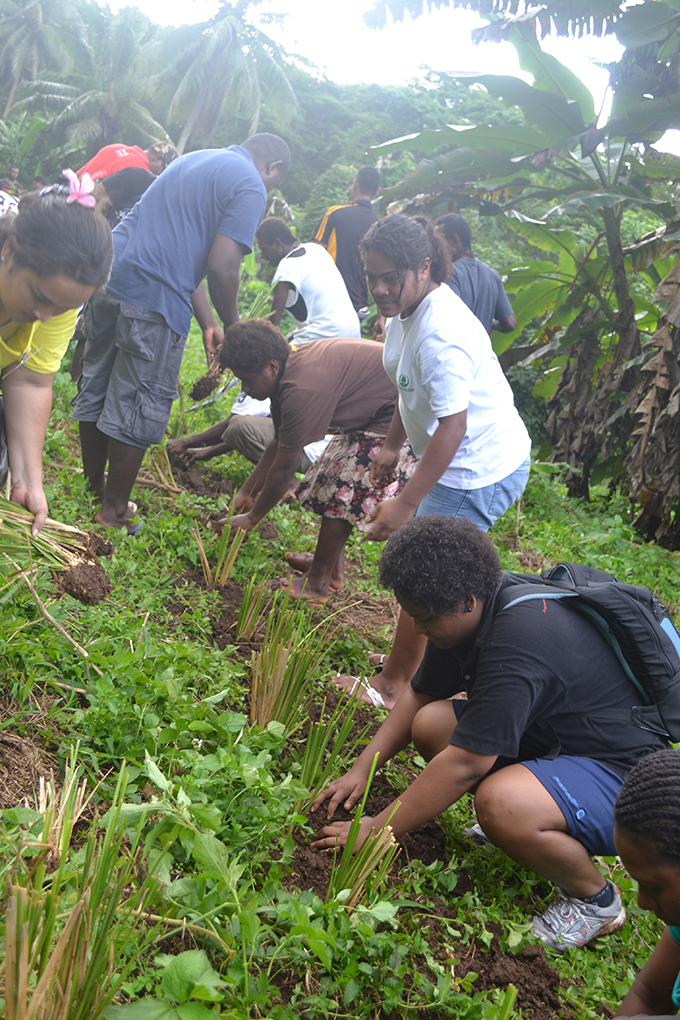More than a thousand Fijian, Vanuatu and Samoan youths will be helped to secure employment through organic agriculture with the launch of a US$1.5 million two-year programme in Suva, Fiji.
The “Farm to Table” project is a partnership between the United Nations Development Programme (UNDP), the International Fund for Agriculture Development (IFAD) and the Pacific Organic and Ethical Trade Community (POETCom) housed within the Pacific Community (SPC) funded by the Sustainable Development Fund (SDG-F).
Activities of the project will address the high levels of youth unemployment in the three countries through skills building in organic agriculture, income generation, food security and climate change resilience.
UNDP Resident Coordinator Osnat Lubrani said the UN is looking forward to supporting a programme focused on sustainable livelihoods that targets youths, adding the project can open up opportunities for income generation, boost confidence and empower young women and men.
“The UN is proud to work in partnership with SPC and POETCom on this initiative, an excellent approach to sustainable farming and at the core is that it relates to food security and nutrition as well as climate change adaptation,” she said.
“All these are closely connected to the recently adopted Sustainable Development Goals.”
Organic agriculture builds resilient farming systems with the ability to withstand extreme weather events and can provide yields comparable to conventional or chemical based farms.
Organic training
As lead implementing agency, POETCom will work with partner civil society organisations, FRIEND, Farm Support Association and Women in Business Development, and the governments of the three countries to identify suitable youths to receive training in organic agriculture and product development.
Target youths are those seeking employment between 18 and 30 years of age or transitioning to formal employment within the next 12 to 24 months.
The programme will address the high level of youth unemployment in the three countries, at around 44 percent of the youth population in Fiji and 8.9 percent in Vanuatu.
To do this, it will support linkages between the agriculture and tourism sectors of these countries, mapping value chains from the farms to hotel tables or retail outlets.
POETCom Coordinator Karen Mapusua said: “In Fiji we are going to focus on Cyclone Winston badly hit areas helping to rebuild the economy through supporting the value chains between the suppliers (youths) and buyers (hotels and restaurants), developing menus that will use local products or the promotion of local products.
“Simply, the youths will be trained to do organic farming, develop a product for example banana or coffee and be supported to market their product with the tourism sector.”
The programme responds to a call by Pacific leaders at the 2011 Pacific Island Forum for increasing youth employment and the aims of the Pacific Youth Strategy for young people to see agriculture as a viable career option.
Economic viability
Mapusua said the programme has the added benefit of getting more youth into agriculture which will boost the economic viability of the sector.
“Though agriculture remains for most Pacific Islands country’s’ population the main source of livelihood, its contribution to economic value added chain has generally declined over the last decade, whereas the tourism sector has seen significant growth,” she said.
“Reinforcing linkages and developing synergies between tourism and agriculture should help to achieve the objectives of sustained and equitable growth.”
IFAD’s Pacific sub-regional coordinator Sakiusa Tubuna said the focus is on poor small-holder farmers.
“IFAD recognises the importance and value of partnership as a means to achieving our development objective,” Tubuna said.
“This is the reason we are partnering with UNDP, POETCom and SPC in this project.
“Our focus is on poor smallholder farmers and this project will enable smallholder farmers in the three countries to benefit from business opportunities that are available locally.”












































